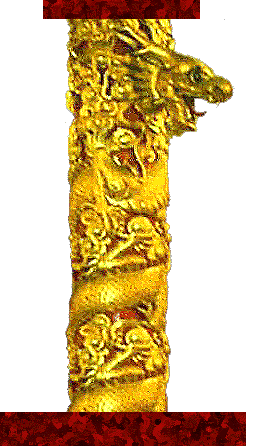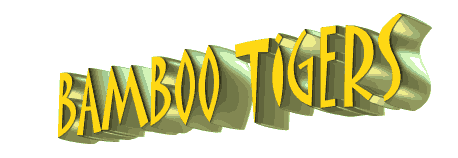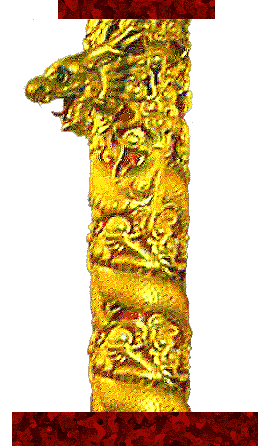| |
At 1:30 A.M on Sunday, March 12, 1977, Dr. Horn thought it might be too late to save the teen-age boy who lay before him. In the aftermath of a Saturday night in the city, the doctor and his staff in the emergency ward of San Francisco General Hospital were swamped with cases mostly from the Mission District, the area they served as Mission Emergency.
To anyone walking in as an observer of the scene, these would have been typical of the cases on such an evening: a Mexican prostitute, slashed by a rival on the street, moaning in the waiting room; a black woman in a faded housedress rocking a coughing baby in her arms; a Filipino boy cradling his head in his hands, leaning forward in his chair to ease the pain of a sock to the jaw; a Vietnamese bartender nursing a cut from a broken beer glass; a stout Samoan woman clutching her ample stomach after eating too much roast pork at a family party; a tipsy, henna-haired man dressed in tight yellow pants, a mesh tank shirt and sandals, angrily shaking the bangles on his wrist at a nurse and demanding immediate attention in a high-pitched voice.
A lab assistant with an envelope of X-rays rushed to find Dr. Horn. The X-rays did not look good. The surgeon shook his head when he examined them. The kid before him was still conscious, but in terrible pain even after an injection of morphine. The bullet had entered the chest and traveled downward to puncture the liver before lodging in the lower back. Delicate surgery was required immediately. Dr. Horn knew that the kid literally had a zero percent chance of surviving such an operation, but it would have to be tried if any hope were to be offered for another day of life. In theory, the surgery should work, but in all previous cases, it had failed.
Dr. Horn was concerned with saving a life. He looked at his assistants. They nodded their willingness to try, looked at the boy, and shook their heads in heartfelt sympathy. The half-conscious kid tried to talk, but no one understood what he was saying. He was obviously Chinese. Dr. Horn wished he could offer a word of comfort.
While the doctor began the fateful operation, Central Station Patrolman Thomas Del Torre stood outside 649 Jackson Street in Chinatown. A Chinese woman came up to him.
"I heard a loud noise," she reported, "and I saw a large black-and-green car driving fast down Jackson. There were several Asian males in the car. That's all I saw."
She hurried away without giving her name.
Del Torre turned to Pearl Wong, 35, owner of the Great Eastern Restaurant, the establishment located at 649 Jackson.
"Looks like somebody shot up your neon sign, ma'am," he remarked, glancing at the sign above the Great Eastern. "Did you see who did it?"
"No," she replied, "I was closing at the time, but I heard a really big blast and then two smaller ones. That's all I know."
The shortwave radio in the patrol car double-parked in the street crackled with a call for Del Torre: "Go to Mission Emergency. There's a shooting victim from Jackson Street in surgery. A buddy brought him in. They're holding him there to talk to you."
Del Torre left Chinatown at full speed. He headed for Mission Emergency, an ultramodern wing behind the acres of iron fencing and rust-colored brick that lent to San Francisco General the bleak air of an aging public institution in need of refurbishing.
There, he met Michael "Mouse" Lee, the boy who was to die inside the front door of Mark Chan's house out in the Avenues six months later--a week after the Golden Dragon massacre.
"My friend's name is Gan Wah Woo," Mouse told Del Torre. "He's my age, 17. We were walking in the 600 block of Jackson Street when a dark-colored Mercury Cougar pulled up in front of us. There were four Chinese guys in it. They shot my friend, then took off eastbound on Jackson. A dark Olds was behind them."
Mouse had no more to say.
Meanwhile, Dr. Horn was making medical history in Surgery. The difficult, well-nigh impossible, operation proved successful. The bullet, however, remained embedded in Gan Wah's body.
When Tim Simmons entered the Intelligence office the next morning, Monday, he was dispatched to San Francisco General, with Inspector George Huegle, to interview Gan Wah Woo.
Still under sedation, Gan Wah had as little to say as had Mouse. A Chinese nurse translated to Simmons and Huegle for him. Surprisingly literate in both Cantonese and Mandarin, the boy spoke almost no English.
Simmons wanted to know if, as he suspected, this had been a gang-related incident.
"I don't know anything about the gangs," Gan Wah said. "I must have got caught in somebody's cross fire. I'm an innocent victim."
"Were they shooting at your friend Michael Lee?" Simmons asked.
"Mouse Lee? Mouse doesn't know anything about the gangs, either."
Gan Wah closed his eyes and went to sleep.
After the interview, the two policemen kicked this information around.
"He's lying," concluded Simmons.
Later that week, less heavily sedated and now wide awake, Gan Wah stuck to his story: "I already told you I don't know anything about the gangs. I've only been in this country four or five months. What would I know about those guys?"
Simmons, noting the flash of two gold incisors when Gan Wah spoke, tagged him for easy identification if it ever became necessary. With Simmons this time was Cantonese-speaking Inspector Herb Lee.
"Yeah, I come from Hong Kong," Gan Wah replied in response to more questions as Lee translated, "and before that, the Mainland."
"How did you get out of Mainland China?" the cops asked.
"I swam out," Gan Wah said through interpreter Lee, "across the Pearl River to Hong Kong--with a dozen sharks and an army of Red Guards on my tail."
"Why did you leave Red China?"
The boy looked at them coldly. It was a disconcertingly evil stare.
"Life in Communist China was oppressive and unbearable," he said. "They made me a Red Guard. I was only 11 years old. When I was 12, I attempted to flee the Mainland, but I was caught. The bastards just about beat me to death."
"What happened to you after that?"
"I went to jail for a year, but upon being released, I immediately took my second chance and succeeded that time."
"What did you do in Hong Kong?"
"I went to school. To LaSalle College, or what you would call a high school here. I played soccer."
"What else did you do in Hong Kong?" Simmons persisted. "Were you also part of a gang over there?"
Gan Wah smirked defiantly. "You never give up, do you? I told you I don't know anything about the gangs here! So what if I was part of a gang in Hong Kong? What difference does that make? O.K., I was hooked up with a Triad! Not like the kid stuff in San Francisco. The Triads are tough. They're the real thing. Hell, I was a 14K!"
Simmons snorted. "Listen, Herb, you tell this little son of a bitch in Chinese that I say he's a goddamned liar! Any guy from the Hong Kong Triads has got to be a gangster in San Francisco. And you make him understand exactly what I think."
"You tell that white motherfucker," the kid growled when Lee translated Simmons' comment, "that when I say I'm not in the gangs here, I mean it!"
The glare he gave Simmons chilled the cop to the marrow.
He'd kill me at the drop of a dime, Simmons thought.
Gan Wah's vicious demeanor suggested that he was a cold-blooded killer. He looked shifty and cunning. If, indeed, he had been a member of the 14K Triad in Hong Kong, he had probably served an apprenticeship in ruthless criminality and thus had learned every trick of the trade from masters. Some years later, Tim Simmons would recollect his first impressions of the boy: "Gan Wah was Triad material--real gutsy and a born liar. He was a kid who could whip out a gun and pull a job all by himself. He didn't need anybody."
| |
|









